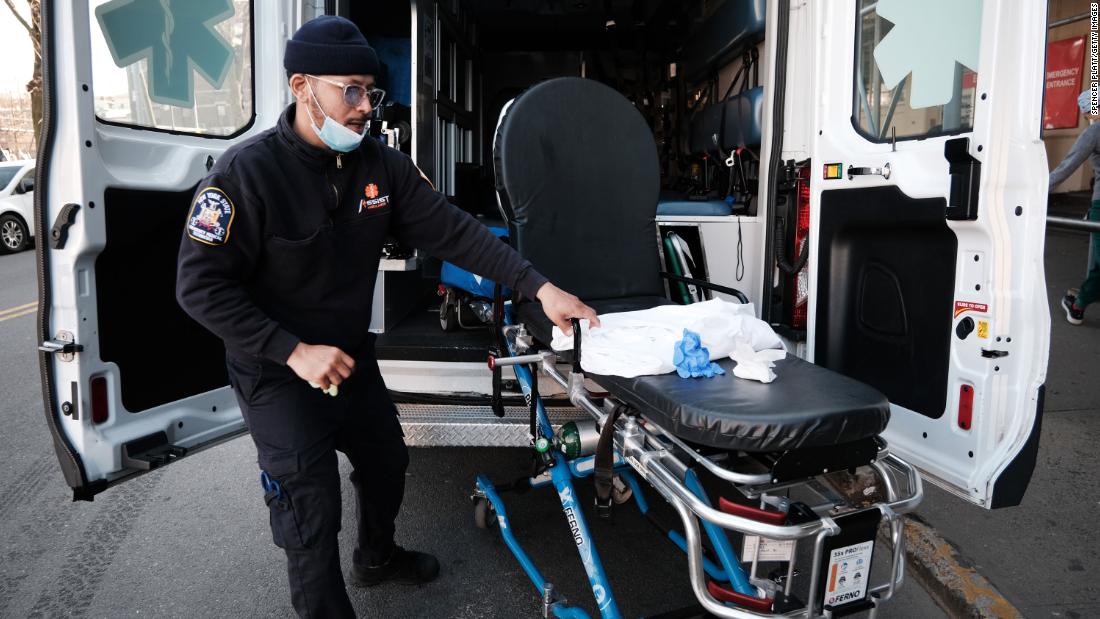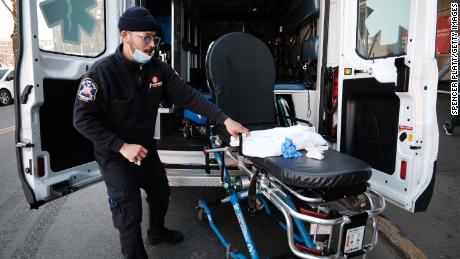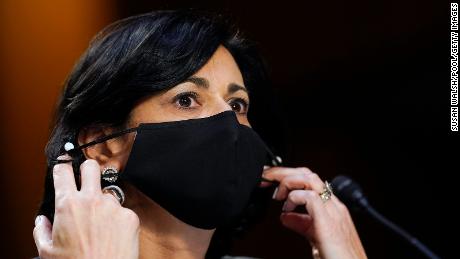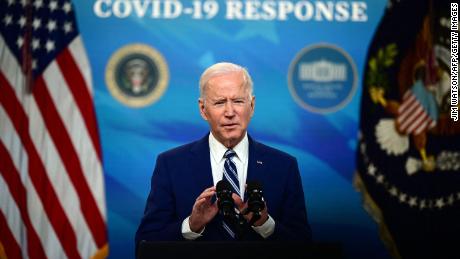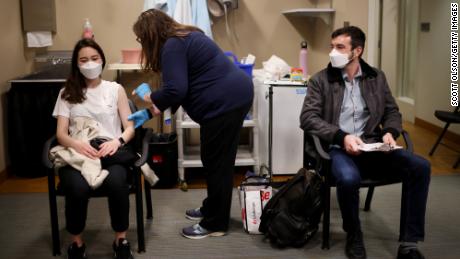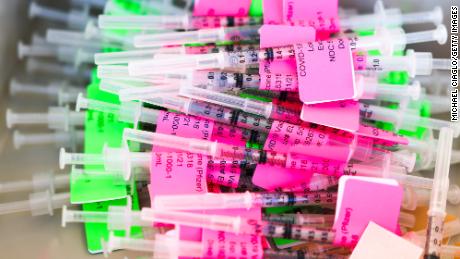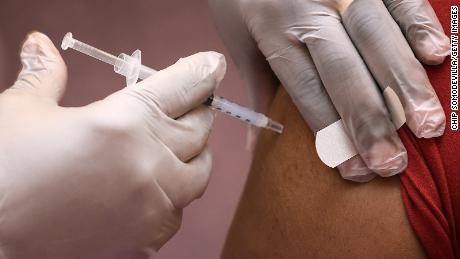CDC chief says latest Covid-19 numbers scare her. Here’s what could be ahead and how to change the country’s course
“There’s still a lot of vulnerable people out there. A lot of people are going to get sick and die unnecessarily when we’re so close to the finish line,” Dr. Ashish Jha, dean of the Brown University School of Public Health, told CNN on Monday night.
Jha’s remarks came as the US hit another grim milestone: more than 550,000 Americans have now died of Covid-19, a death toll far higher than any other country’s.
Speaking during the White House Covid-19 briefing Monday morning, Walensky said she was “scared” about where the US is heading, and shared her feeling of “impending doom.”
“I so badly want to be done. I know you all so badly want to be done,” she added. “We are just almost there but not quite yet. And so I’m asking you to just hold on a little longer, to get vaccinated when you can so that all of those people that we all love will still be here when this pandemic ends.”
How we got here and what we can do
After a crippling winter surge, the US saw steep declines in Covid-19 numbers before hitting a plateau just weeks ago — when new infections appeared steady but still stunningly high, with tens of thousands of new cases reported daily.
But the US is not powerless right now, the CDC director said.
“We can change this trajectory,” she added.
What that will take, while vaccination numbers climb, will be doubling on safety measures that have proven to work: face masks, social distancing, avoiding crowds and regularly washing hands.
“I’m calling on our elected officials, our faith-based communities, our civic leaders, and our other influencers in communities across the nation, and I’m calling on every single one of you to sound the alarm to carry these messages into your community and your spheres of influence,” Walensky said. “We do not have the luxury of inaction. For the health of our country, we must work together now to prevent a fourth surge.”
More state leaders ease restrictions
The CDC director’s warnings have been echoed by experts across the country for weeks. But at least a dozen governors, citing lowered Covid-19 numbers and ongoing vaccinations, eased Covid-19 restrictions this month, against health officials’ guidance.
Most recently, Delaware Gov. John Carney announced he was increasing outdoor gathering limits and easing capacity restrictions in outdoor venues starting Thursday.
“We know that gathering outdoors poses a lower risk of COVID-19 infection and transmission,” Carney said in a statement. “That’s why we’re comfortable easing certain outdoor restrictions as we head into Spring.”
Alabama Gov. Kay Ivey will move ahead with her plan to end the state’s mask mandate next week, her spokesperson told CNN.
“As Governor Ivey has previously stated, Alabama’s mask mandate ends April 9. We have made progress, and we are moving towards personal responsibility and common sense, not endless government mandates,” spokesperson Gina Maiola said.
Other state leaders, including Texas Gov. Greg Abbott and Mississippi Gov. Tate Reeves have also done away with mask mandates.
On Monday, President Joe Biden made a plea to leaders across the country to put mask mandates back in place.
“I’m reiterating my call for every governor, mayor, and local leader to maintain and reinstate the mask mandate. Please,” he said. “This is not politics.”
Just 1 state hasn’t announced vaccine plans for all
The President had previously said he was directing states to open eligibility to all adults by May 1, but this week he said, “For the vast, vast majority of adults, you won’t have to wait until May 1. You’ll be eligible for your shot on April 19.”
By now, all but one state has announced when they plan to open vaccinations to everyone eligible under the Food and Drug Administration emergency use authorization.
In Arkansas, no announcement has been made yet, but a spokesperson for the state’s health department told CNN late last week they “anticipate meeting the May 1 benchmark.”
Pfizer’s Covid-19 vaccine is the only one available for use by people who are 16 and older, while the Moderna and Johnson & Johnson vaccines are restricted to people 18 and older.
Finally, the great news
Amid the alarming trends the US continues to see, there is still plenty to feel optimistic about.
Vaccines are administered in the US at a record pace. All three vaccines that are being distributed in the country appear to work well against the B.1.1.7 variant.
And under real world conditions, the Pfizer and Moderna Covid-19 vaccines provide highly effective protection, a new CDC report says.
At full vaccination, the vaccines were 90% effective at preventing infections — including infections that had no symptoms. And at least 14 days after the first dose but before the second dose, they were 80% protective, according to the agency’s Morbidity and Mortality Weekly Report published on Monday.
The results showing the level of protection from a single dose after two weeks are similar to findings from other recent studies in the UK and Israel.
But Dr. Anthony Fauci told CNBC on Monday that it is still unknown whether the protection from one dose is long-lasting or strong enough to substitute for the two-dose schedule.
“We don’t know how long that 80% is durable,” he said. “It may drop off a cliff in two weeks or three weeks.”
CNN’s Joe Sutton, Jen Christensen, Jamiel Lynch, Dave Alsup, Ashley Ahn, Jacqueline Howard and Virginia Langmaid contributed to this report.
![]()


